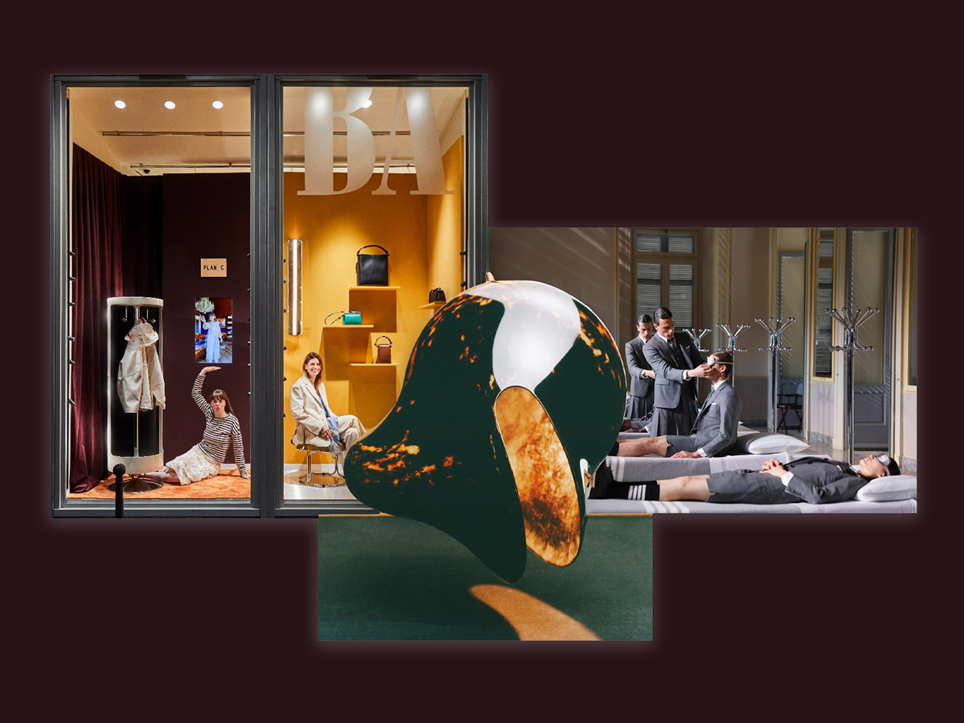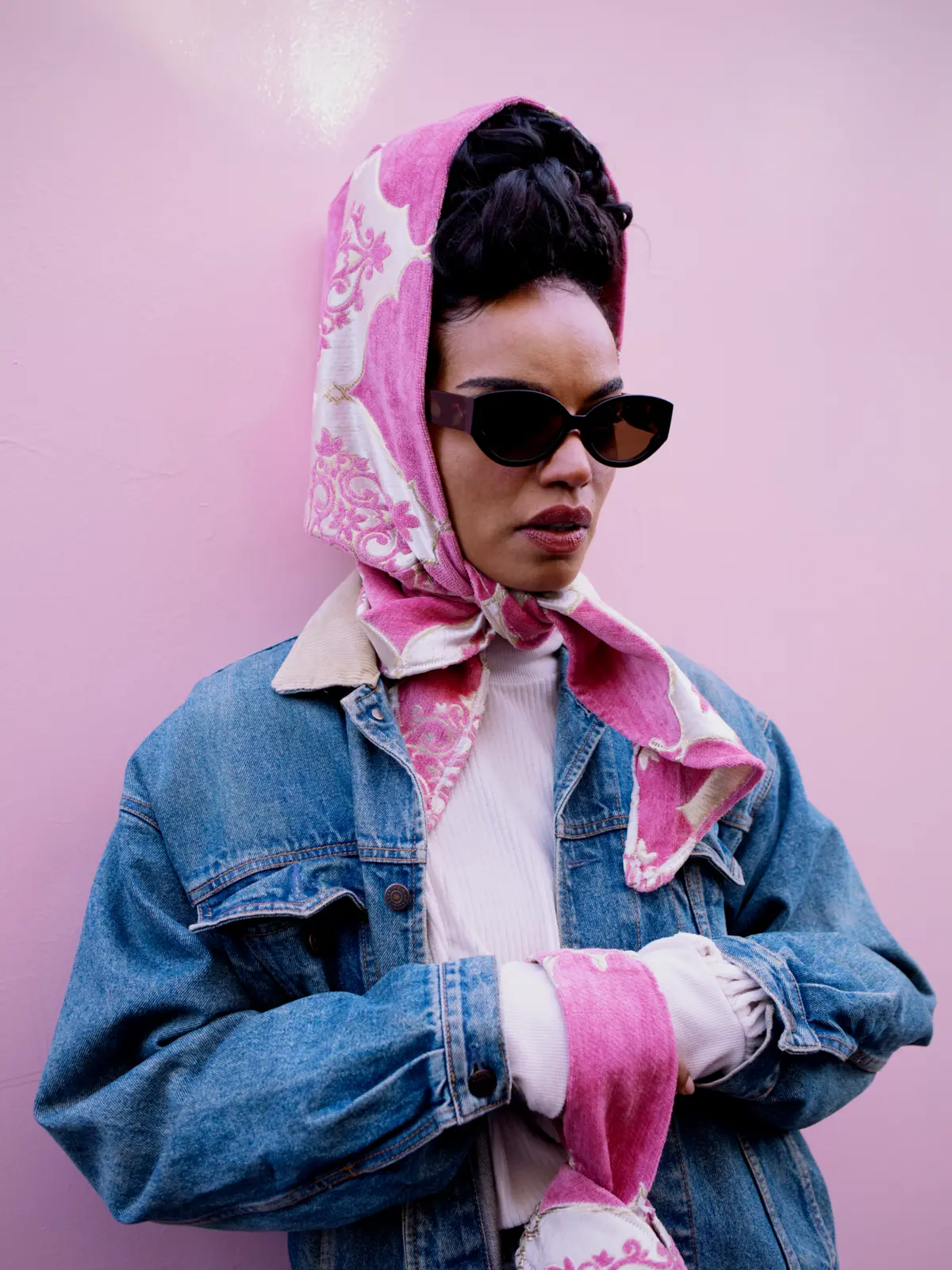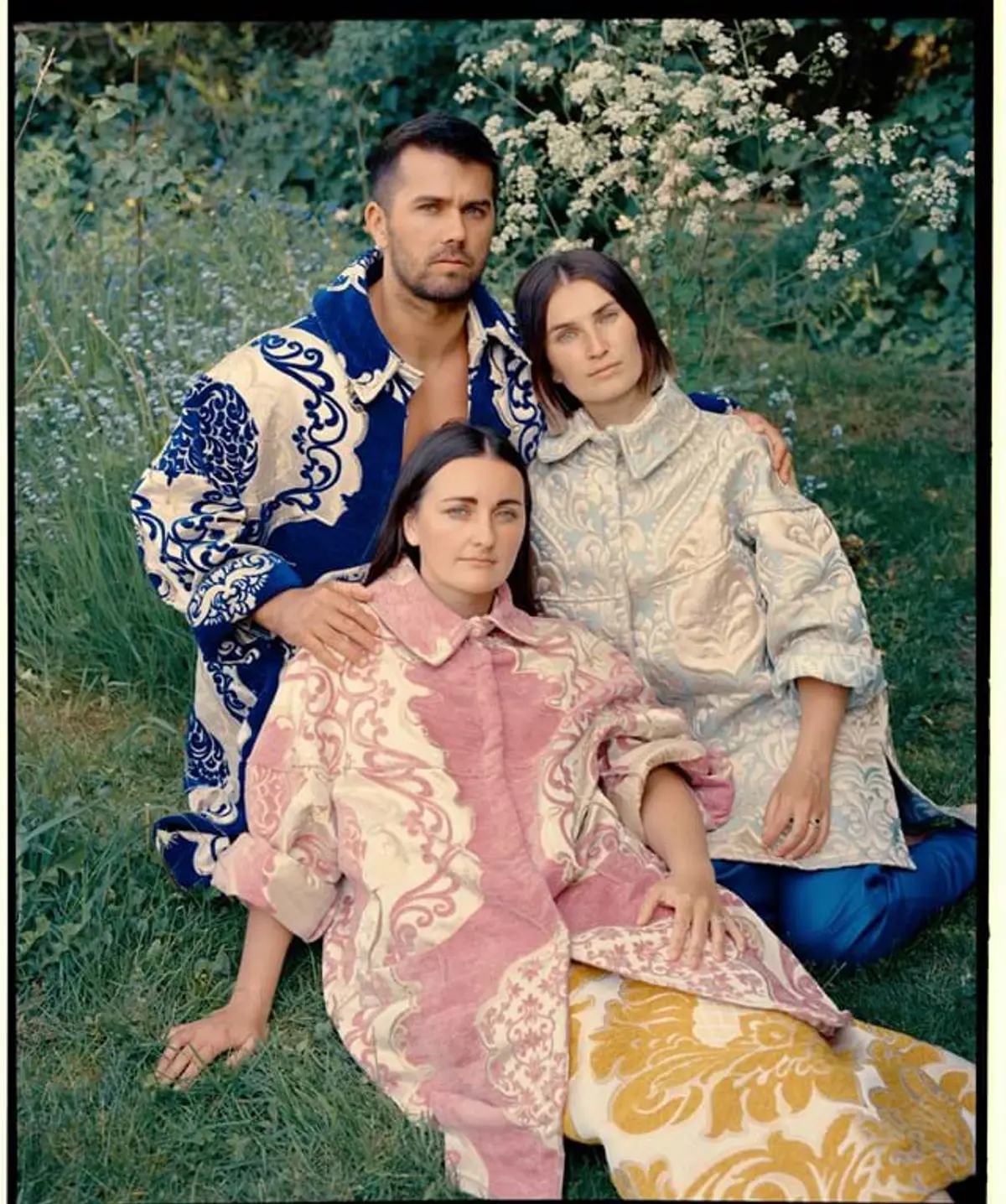
What's on? | Apr 19, 2024
Milan Design Week Highlights

meets | Jun 18, 2024
Behind the Seams with… Story Mfg

London Fashion Week | Jun 13, 2024
LOVERBOY and other highlights from LFW SS25 Men's


Female Founded: Zoubida
Because Meets... Sophia Kacimi
Zoubida has emerged as an exciting new brand that demands attention through its vibrant colours, striking prints, and a harmonious blend of cultural inspirations, all woven together by local artisans. Founded by Sophia Kacimi, a French-Moroccan residing in London, the brand is not just about fashion; it's a journey to forge connections with craftspeople and redefine our perception of style. We sat down with Sophia to delve deeper into the story behind Zoubida.
Can you tell us more about what inspired you to start Zoubida?
I started Zoubida as a way to connect more with my Moroccan roots, but also as a response to how the fashion industry operates. I used to work as a Collection Merchandiser and Strategist for luxury brands, and the industry from inside made me want to create a project at human size, that brings work to people I know. It all started 5 years ago, as a concept of art retreats and workshops in a village in the Atlas, and evolved into a brand during Covid.
How do your background and experiences influence the design aesthetic of Zoubida?
I am not trained as a designer. I studied economics and business development. It was working in strategy for luxury brands for more than 10 years that made me want to create a project in response to it. I realised the impact of the industry on the environment, the excess of production, and the delocalisation it generates.
In terms of aesthetics, I always say that Zoubida is a mix between the two parts of my current identity: Morocco and the UK. Our creations truly combine traditional Moroccan crafts and a London quirkiness that has been a big inspiration since I moved here about 8 years ago (bold colours, clash of prints, genderless wardrobes…)
Could you walk us through your unique creative process when designing new pieces? How do you go about sourcing the materials you use?
I have 2 main starting points: The first one is the materials we use. These fabrics, called Tlamt in darija (Moroccan spoken language) are beautiful textured jacquards, traditionally used to decorate Moroccan salons (sofas, cushions, curtains). I realised that if a shop has 2 to 5m left, it remains unused as to decorate a salon fully you need 20-30m. So all our creations are using end-of-life stock, that we upcycle into one-of-a-kind pieces. All the fabrics are chosen by myself personally or by my family.
The second is the artisans I meet. Regularly, I am being introduced to talented artisans who need economic support as their craft is in decline. If so, I always do my best to think of a fun product we can do together, taking into account their ways of working and tools. For example, last year I met an artisan in Fes who was making belts. As it was a time when dog accessories became a real trend and market, I commissioned him to make ‘tiny belts’ that were actually dog necklaces!
Photograph by Alexandre Desmit
Why was it important for you to change how we think about fashion by fostering community and keeping things local?
The way the fashion industry currently operates clashed with my personal values. Being an artisan is not a profession valued by the Moroccan society. And craftmanship is in huge decline, due to its slowness and because it is anchored in old traditions. Younger generations are not interested in getting close to it. So real know-how is slowly disappearing.
In the Western world, we are in a phase of complete return to this appreciation: celebrating arts and crafts, and searching for what is unique, handmade, and bespoke. I felt the responsibility to connect both these worlds. Zoubida is born as a bridge between my two cultures.
You offer a "design your own" category, why was this something you wanted to build into the brand?
I felt I had a role to play to change at my level how people consume fashion… if I started a brand, it had to be a thoughtful one. One of the main issues of the fashion industry is the excess stock. Because production has to be actioned and confirmed before we truly know what the reaction will be from the consumer, there is a disconnection between forecasts and reality, and a lot of time, a product we anticipated to be a success ends up not selling.
As a small business, I was very scared to take these risks. Also, because I work only with fabric deadstock, I have a tiny amount of each fabric, so deciding what to cut and in which size is such an impossible task.
I decided to work only with independent artisans and not factories, the strength of my business model is that I have no minimum production. Our way of working is quite slow, mostly handmade, close to haute couture. I can therefore give the possibility to clients to have a fully bespoke piece and adapt to each body shape.
Launching an independent brand in the current climate requires a certain leap of faith. What motivated you to take this step?
Absolutely, and I say it out loud: I work as a consultant alongside Zoubida, to make this adventure possible and pay my rent. When I see the impact my brand has on our artisans (and their families) and the effect it is having on the way people think about local craftsmanship, I think MISSION ACCOMPLISHED. Being an entrepreneur is such a roller coaster and such a hard challenge, but the trick is to not focus on the day-to-day and the sales, but more on the journey, and the life experience.

Photograph by Otto Masters
Can you share some of the key milestones or challenges you've faced in building Zoubida, and how they have shaped your journey as a female founder?
When we think of creating a brand, the creative and fun part is the visible tip of the iceberg. Most of the work that goes on is less sexy: logistics, finance, accounting, e-commerce, social media, sales, press…I find it really hard (even after more than 2.5 years of running my brand) to be on top of all of it as a one women business.
One of the hardest challenges is the distribution. My creations are so unusual that they need to be seen, touched and tried. Having just an online platform is not enough. However, the current climate means that wholesale partners are not taking any risks with new brands. I had to think outside of the box and try my luck with unusual concepts. I am very proud to share that we are in the De Toujours, a shop that curates craftsmanship and patrimony products in the Mucem Art Museum of Marseille, but also at the cool and trendsetting library OFR in Paris.
For women interested in entering the fashion industry, what advice would you give based on your experiences as the founder of Zoubida?
Dare to make your own thing, at your own pace, and not follow what you might think the fashion industry rules are. Do what makes sense to you and what aligns with your values, and with your heart.
One last piece of advice would be to ask the people around you for help. My friends and family played a central role in what Zoubida is today, and what makes it worth it for me.